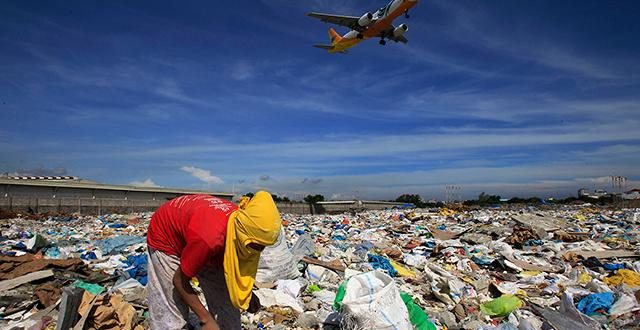The forces of globalization have made the global economic system more vulnerable to production losses caused by climate change, new study shows.
The analysis by the Potsdam Institute for Climate Impact Research and Columbia University shows for the first time how enhanced connectivity of the global network of supply can amplify production losses, as these losses can be spread more easily across countries.
“Climate damages do not only depend on the warming of our planet, but also on the resilience of our societies and economies,” says lead author Leonie Wenz. “Our study shows that since the beginning of the 21st century the structure of our economic system has changed in a way that production losses in one place can more easily cause further losses elsewhere.“ The study examines the example of local heat-stress-related productivity reductions causing global effects. Across the world, production is interlinked. “What is self-evident for us today is really a phenomenon of the last two decades,” Wenz explains.
From typhoons to heat-stress on workers: local events, global effects
Typhoon Haiyan in the Philippines destroyed more than half the world’s production of coconut oil which is one of the two most commonly used vegetable fats in food production worldwide. The 2011 flood in Queensland stopped production in the fourth biggest coal exploration site on Earth for weeks, with economic repercussions well beyond Australia. While single major shocks to economic networks like these illustrate how economic activity is globally linked, the researchers focused on the effects of small daily perturbations due to extreme temperatures leading to heat-stress among workers in construction, agriculture and other economic sectors. Previous research shows that increasing temperatures decrease productivity, because, for instance, workers get exhausted more rapidly.
The study covers economic flows between 26 industry sectors from mining and quarrying to textiles and wearing apparel and to post and telecommunications as well as final demand in 186 countries. Combining data on temperature, population and the global economic network from 1991-2011 and based on existing research on temperature effects on workers, the scientists run computer simulations of heat-stress consequences in order to find out more about the network’s vulnerability to the propagation of production losses in each year.
“This is the basis for implementing appropriate adaptation measures”
“With unabated climate change, the effects of increasing weather extremes, like most recently seen in Paris, will have severe impacts on natural and societal systems,” says co-author Anders Levermann. “To estimate the costs of future climate change we need to assess global economic impacts of more frequent heat extremes and meteorological impacts, such as floods and tropical storms, and understand their relation to the economic network’s structure. This is the basis for implementing appropriate adaptation measures – in a warming world with more intense weather extremes it is likely that society needs to become more resilient and more flexible.”
Agencies/Canadajournal
 Canada Journal – News of the World Articles and videos to bring you the biggest Canadian news stories from across the country every day
Canada Journal – News of the World Articles and videos to bring you the biggest Canadian news stories from across the country every day




Yes! We need to address the effects of climate change and stop trying to stop a speeding locomotive with our bare hands. We can not affect climate but we can do what all life on this planet does, adapt,